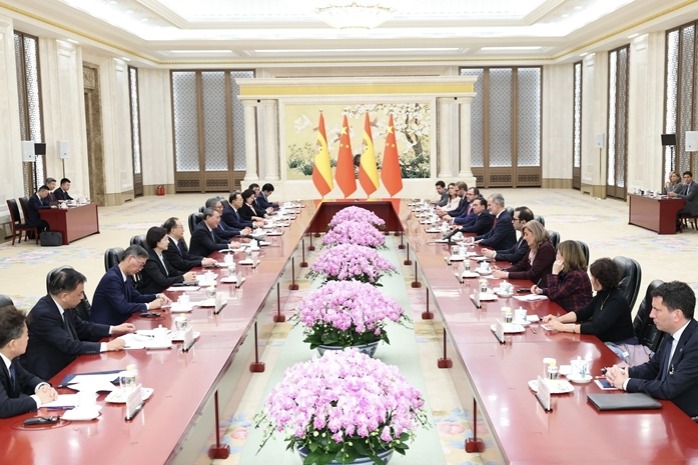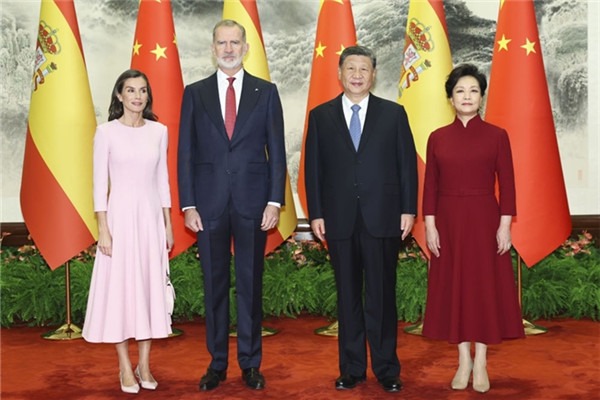World University Presidents Forum in Hangzhou discusses AI in education


The 2025 World University Presidents Forum convened last weekend in Hangzhou, Zhejiang province, bringing together higher education leaders from more than 40 countries to discuss how artificial intelligence is transforming teaching, learning, and governance in universities.
At the forum, Vice-Minister of Education Ren Youqun emphasized the need to strengthen risk prevention, expand data access, and cultivate ethical and value-based rationality as AI technology continues to advance.
Co-hosted by the China Association of Higher Education and Zhejiang University (ZJU), the event attracted nearly 170 participants from academia, government, and industry to discuss how AI will affect the future of higher education.
During the forum, the Global University Collaborative Mechanism for Innovation in AI Education and Teaching was launched, with 78 universities from China and abroad joining as founding members. The mechanism will publish a white paper on AI literacy and develop global open courses and "AI+X" micro-programs. These initiatives will advance the STEP (Start, Train, Explore, Progress) framework to guide joint efforts in applying AI to education.
"In recent years, our university has been working to integrate AI into education through our AI STEP Initiative. It aims to promote AI-empowered education across the four stages to develop students not just as learners but as innovators," Ma Yanming, ZJU's president.
Also held in Hangzhou on Nov 9, the 2025 International Forum on Higher Education released the Hangzhou Initiative, which calls for reshaping talent cultivation models that integrate human–machine collaboration, exploring new research paradigms supported by intelligent technologies, improving education governance mechanisms empowered by AI, strengthening ethical norms for AI application, and building a global community for innovation in intelligent education to jointly advance the sustainable development of global higher education.
Ren Shaobo, chairman of the Zhejiang University Council, highlighted ZJU's efforts to cultivate innovative talent for the AI era and explore new models of AI-empowered university governance. "Zhejiang University will deepen cooperation with global partners and institutions to drive reform and innovation in higher education."
Shahbaz Khan, director of the UNESCO Regional Office for East Asia, noted that AI has already transformed daily life and learning. "It is transforming every aspect of life, work, and learning. Yet, the real question before us is not what AI can do, but how it can serve humanity — how it can support equity, sustainability, and peace."
- World University Presidents Forum in Hangzhou discusses AI in education
- Police offer bounty for clues about 2 Taiwan online influencers
- China tackles 'Darwin's Dead Sea' of innovations with new pilot platform push
- Chinese researchers solve mystery of seismic activities at eastern Himalayas
- Gathering clues on separatist acts legitimate, necessary: mainland spokesman
- Chinese researchers develop high-efficiency perovskite solar cell with enhanced stability





































